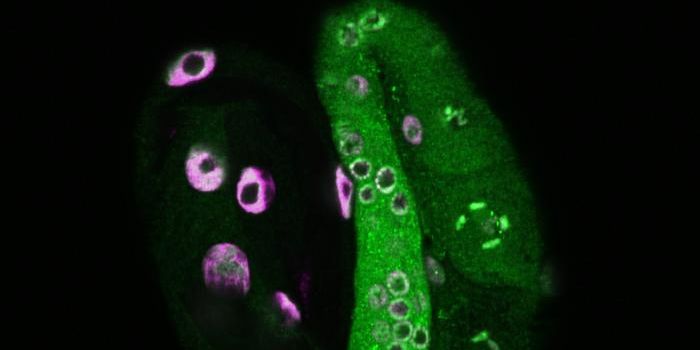Learning More About the Causes of Preeclampsia
Preeclampsia is a complication of pregnancy characterized by high blood pressure and it arises in anywhere from two to eight percent of pregnancies. It is manageable in many cases, but can also be severe and may lead to death. There are risk factors for the issue, including diabetes and obesity. Vitamin D deficiency has also been linked to an increase in the risk of preeclampsia. Researchers have now investigated a set of genes whose expression has been connected to preeclampsia; they found that vitamin D status has a significant influence on these genes. The findings have been reported in Pregnancy Hypertension.
In preeclampsia, blood vessels that supply the fetus with nourishment may not be developing properly. The issue can threaten the health of some pregnant mothers, and the only solution is to deliver the fetus early. That can clearly be problematic for the fetus if it has not had long enough to develop.
Previous work led by Kyu-Ho Lee, M.D., Ph.D., an assistant professor in the departments of Pediatrics and Obstetrics and Gynecology at Medical University of South Carolina (MUSC) suggested that early-onset and severe preeclampsia (EOSPE) are highly correlated with the expression of three genes called NKX2-5, SAM68, and sFLT1. The sFLT1 gene was also found to be a marker for preeclampsia risk.
In this new study, the researchers investigated the activity of these genes in healthy pregnant women.
"Having observed the correlated expression of these genes in preeclampsia, we wanted to see the pattern of expression of these genes in normal pregnancy," said Lee. "We had a secondary goal of seeing whether vitamin D status affected the expression of these genes."
The protein encoded by the sFLT1 gene is known to disrupt the action of a regulator of blood vessel development called vascular endothelial growth factor (VEGF). The overall impact reduces the growth of vasculature in the placenta. Two genes together, SAM68 and NKX2-5, control the amount of sFLT1 in the placenta. Thus, the researchers proposed that NKX2-5, SAM68, and sFLT1 are a gene "axis" that could be affecting the development of preeclampsia.
"NKX2-5 might be controlling the regulation of sFLT1 and SAM68 in such a way that in preeclampsia, the expression levels of those genes go awry and tilt the vascular development in a direction that might trigger preeclampsia," explained Lee.
The researchers enrolled 43 pregnant volunteers (including Black, Hispanic, and White women) in a study to learn more about how vitamin D influences this axis. Half of the participants received vitamin D3 (4,000 IU/day) and the other half got a placebo.
Unlike their previous research, a significant amount of NKX2-5 was not found in tissue from healthy placentas before delivery, which may indicate that NKX2-5 expression is not important to normal pregnancies, only at-risk pregnancies. The correlation between SAM68 and sFLT1 was confirmed, however.
"The tight correlation between SAM68 and sFLT1 makes us think that there's a functional relationship between these genes," said Lee.
Women were assessed just before delivery, and those who were vitamin D deficient had significantly higher levels of sFLT1 and lower levels of VEGF in the placenta compared to women who had normal vitamin D levels.
"These results raise the possibility that vitamin D somehow directly regulates sFLT1 and/or SAM68 expression at some level," said Lee. "However, at this point, we haven't addressed the exact molecular relationship."
More work will be needed to fully understand the connections between these genes and proteins, but this study may help us identify women who are at risk for preeclampsia.
"We can begin to develop clinical markers that would help us gauge the health of a pregnancy during its course," said Lee. "This could provide warning signs for an increasing risk of pregnancy complication."
Sources: AAAS/Eurekalert! via Medical University of South Carolina, Pregnancy Hypertension









